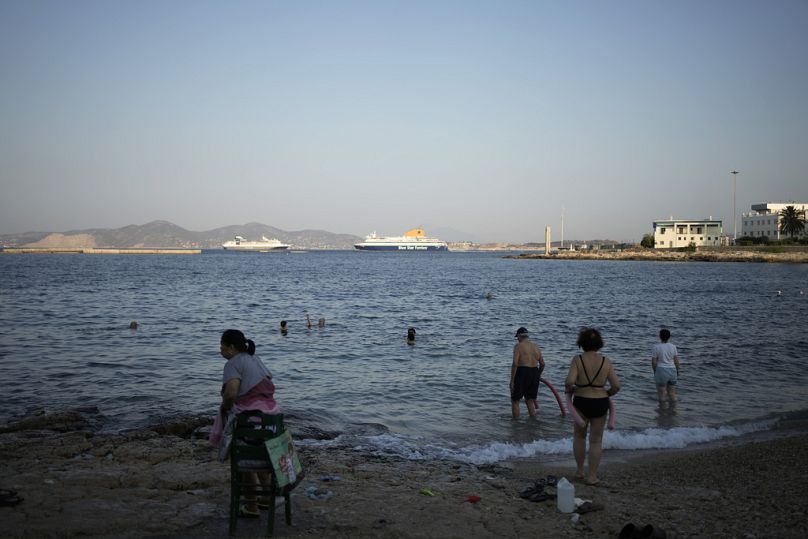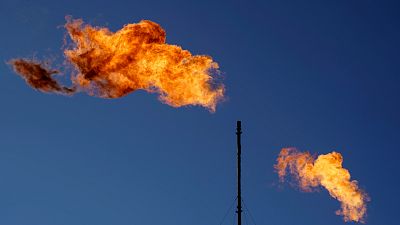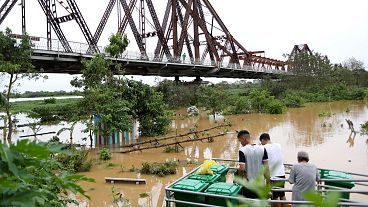Scientists say prolonged high sea surface temperatures are causing problems.
The Mediterranean Sea reached its highest-ever surface temperature last week, according to Spanish researchers.
The average of 28.9°C on 15 August, calculated with data from the European Union’s Copernicus Earth observation programme, topped the previous record set in July last year. A maximum temperature for the day of 31.96°C was also recorded on the Egyptian coast at El-Arish.
Almost the entire basin is suffering under the effects of a marine heatwave. Sea temperatures have spiked, particularly close to shore.
But these warm waters aren’t unique to this summer and the region is a hotspot for climate change. Sea surface temperatures have been unusually high since 2022, abnormal even in the context of global warming. The Mediterranean is warming at a much higher rate than the global average.
For the last two summers, its waters have been warmer than they were during the 2003 heatwave where temperatures hit record numbers that went unchallenged for two decades.
These prolonged high sea surface temperatures could have major consequences across the basin.
Why are marine heatwaves a problem?
The world’s oceans and seas are complex ecosystems which serve as vital climate regulators.
They play a critical role in mitigating the effect of human activities on the environment, absorbing around 90 per cent of the excess heat generated by anthropogenic activities since the Industrial Revolution began.
This heat is distributed around the world via ocean currents. Some of it is released into the atmosphere, some penetrates the deeper layers of the ocean. It is a crucial process for maintaining our planet’s climate systems.
Marine heatwaves, characterised by prolonged periods of exceptionally high ocean temperatures, show us that something in that system has gone out of balance. Pierre Bahurel, director general of Mercator Ocean International says we should think of them like “underwater wildfires”.
“There is the same thing in the ocean with these heatwaves and we tend to think that it's far away, that it's another story,” he says.
“But it's the same story and we need to understand what biodiversity is going to be definitively destroyed, what the impact will be on us, what it will change next in terms of the great balances and, above all, how we can avoid continuing this disaster we've wrought on the oceans.”
Research published last year found that around half of the worst marine heatwaves on record have hit the Mediterranean since 2015. Scientists say this repetition - the ‘new normal’ - is what is causing problems.
What impact are marine heatwaves having on flora and fauna?
Global marine heatwaves have already had major impacts around the world from coral bleaching and seagrass dieback to disease in invertebrates and location shifts in local fish species. The mass mortality of marine species is one of the most dramatic effects.
Some places, however, “are more fragile than others,” according to Marie Drevillon, oceanographer at Mercator Ocean International. The Mediterranean Sea, almost entirely enclosed by land, is one of them.
Many of the protected species that live there are either rooted in the ground, can’t move away from the extreme heat or don’t have time to flee or adapt. Non-mobile organisms, like coral, algae and sponges, can’t escape the extreme environmental conditions and are particularly prone to extreme thermal stress.
Scientists haven’t yet fully documented how these heat waves are changing the Mediterranean Sea either.
“It's been a decade since we started to understand perhaps the real impacts on fauna and flora,” Drevillon adds.
“We know that for example there are large, entire populations of gorgonians (corals) that have died following the heat waves, especially in 2022.”
Some species do manage to migrate away from the heat - though they struggle with food sources if they choose to move into deeper, cooler waters.
The Suez Canal also acts like a highway for non-native marine animals adapted to the heat to invade from the Red Sea or the Indian Ocean.
A 2021 WWF report found that more than 1,000 invasive species have so far entered the Mediterranean, mostly on ships. They spread north and west every year with some going on to outcompete local populations.
Lost income and less tourists: What other impacts are marine heatwaves having?
Though the mass mortality of marine species may be the most dramatic consequence, it isn’t the only one caused by abnormally high sea temperatures.
Economic impacts grow as fish farmers struggle to keep their animals alive in the high heat. Moving aquaculture stock like mussels or oysters is a very involved task and not easy without long-term forecasts.
Communities which rely on the sea for their food struggle too as fish stocks drop. Jellyfish blooms plague both tourists and fishermen.
Around €400 billion of ocean-related value is generated from the Mediterranean's natural capital each year and climate change is leaving the socioeconomic future of the region uncertain,
The temperature of the Mediterranean Sea may also have something to do with the extreme weather southern Europe has seen during recent summers - especially the oppressive nature of the heat.
Prolonged warm ocean temperatures can fuel storms leading to heavy precipitation. This may have also played a role in the weather conditions that caused a superyacht to sink off the coast of Italy on Monday.
They can also boost land temperatures above what they might otherwise be. In coastal regions, warm waters can reduce wind speed and increase humidity on land, making a heatwave more uncomfortable and more dangerous.
Karina von Schuckmann, another of Mercator Ocean International’s oceanographers, says that oceans hold on to excess and heat and these impacts will last for a long time.
“We have to really think about adaptation,” she explains.
“With the choices we take…the more we take in terms of mitigation and slow down this increase in warming, the more time we will gain in order to adapt, in order to understand the system.
“There are too many components we don't understand today to improve our capabilities, to better predict with less uncertainties. So with every mitigation step, we have more time, and then we can adapt and move towards a climate resilient future.”

















